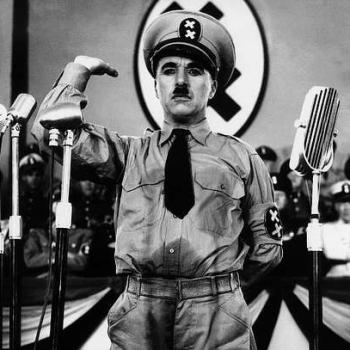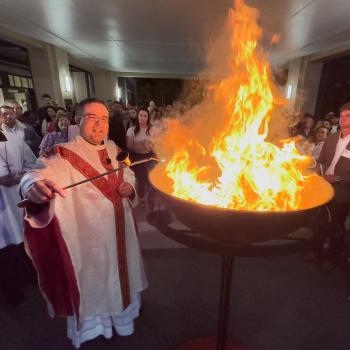In her recent op-ed for The New York Times, "A Religious Legacy, With Its Leftward Tilt, Is Reconsidered," Jennifer Scheussler considers Christianity's lasting influence on the American religious consciousness. She credits the Protestant mainline churches for the growing "spiritual but not religious" cadre of believers who value tolerance, racial and sexual equality, and ecumenicalism over doctrine. In doing so, she presents evangelical and mainline Protestant Christians as pitted against each other in a zero sum game.
Whatever the future outcome for Protestant Christianity in America—and no matter how murky the present landscape—one would be remiss to overlook the unique legacy of evangelist Billy Graham, whom Scheussler invokes to illustrate the mobilization of evangelicals against mainline-endorsed leftist causes in the 1950s; Graham comes off the page as little more than a firebrand polemicist.
Quite to the contrary, Graham's impact on American Protestantism has been one of inclusion—building bridges of understanding to unite ecumenicals and evangelicals and, in latter years even Catholics—in evangelism. Using a football metaphor, if leaders of diverse Christian confessions were perceived to be playing between the ten-yard-line and the goal at either end of the field, Graham brought them mid-field between the two forties.
Writing in The Christian Century, Dr. Grant Wacker, professor of theology at Duke Divinity School, agrees in part with Scheussler's estimation that the mainline establishment "still exerts enormous influence on the culture-shaping agencies of our society," but argues that Billy Graham's increasingly progressive record on civil rights and other issues "placed him in the moderate forefront of American Christians' social conscience."
Graham's preaching had its genesis in hardline fundamentalism, but by 1957 he had demonstrated to the world that he was an unstoppable force for the burgeoning "New Evangelical" movement: an effort to draw evangelical Christians away from fundamentalists' separatism and toward the mainline's more inclusive emphasis on one's personal relationship to God. Graham's biographer William Martin observes in A Prophet with Honor that as "non-Evangelicals watched the streams of people who responded to [Graham's] invitation, they wanted to channel at least a trickle of them into their own churches."
Essentially, the conflict between conservative and liberal Protestants boiled down to a matter of intellect versus emotion. Mainline Protestants accused evangelicals of anti-intellectualism, and evangelicals saw liberals as lacking the impassioned strategy required to spread the Gospel message. Theologians like Reinhold Niebuhr critiqued evangelicalism's triumph in bringing fresh faces through their doors—he viewed evangelicals' membership gains as the product of their "oversimplification of difficult issues."
Graham's response to Niebuhr's criticisms exhibits why Graham was so effective in spanning the divide between conservative and liberal Christians: he humbly acknowledged Niebuhr's superior intellect and education, but observed that the mainliners' overwrought concern for theology had a poor track record in recruiting new adherents: "I feel inadequate before [Niebuhr's] brilliant mind and learning," Graham said, adding, "If I tried to preach as he writes, people would be so bewildered they would walk out." Graham's strength lay in his ability to synthesize heady orthodoxy and earthy evangelicalism, embodying a captivating faith that integrated head and heart.
As Graham's following gained momentum, mainline institutions, such as divinity schools and Anglican churches in England and Scotland, Ivy League campuses like Harvard and Yale, among others, began to entreat him to address their constituents. Having turned down earlier invitations in 1951 and 1954 from the Protestant Council of the City of New York representing some 1,700 churches in the New York City metro area, Graham finally agreed in the spring of 1957 to organize a crusade in Madison Square Garden.
Fundamentalists, uncomfortable with Graham's affiliation with the mainline, his rejection of their exclusionary dispensationalist beliefs and his cooperation with liberals, lambasted him. They complained he had sacrificed "the cause of evangelism on the altar of temporary convenience." Graham responded to this criticism by declaring, "I would like to make myself clear. I intend to go anywhere, sponsored by anybody, to preach the Gospel of Christ if there are no strings attached to my message."
According to Wacker, after 1950 Graham declared he would not accept any invitation unless a majority of a city's Protestant ministers gave at least tacit support. Journalists' accounts of his crusades recurrently reported the prevalence of attendees from mainline churches and the high level of cooperation from mainline pastors.




